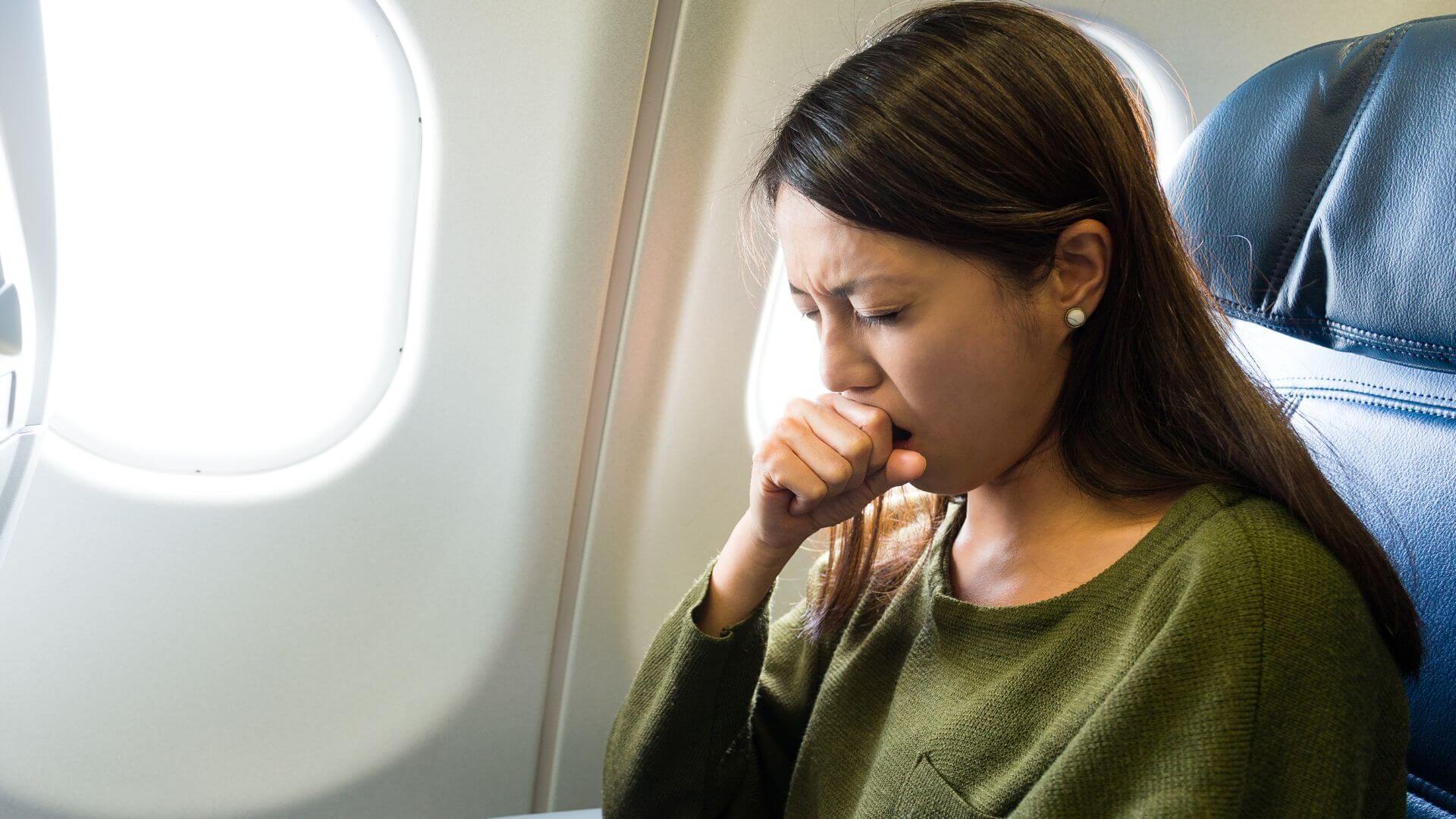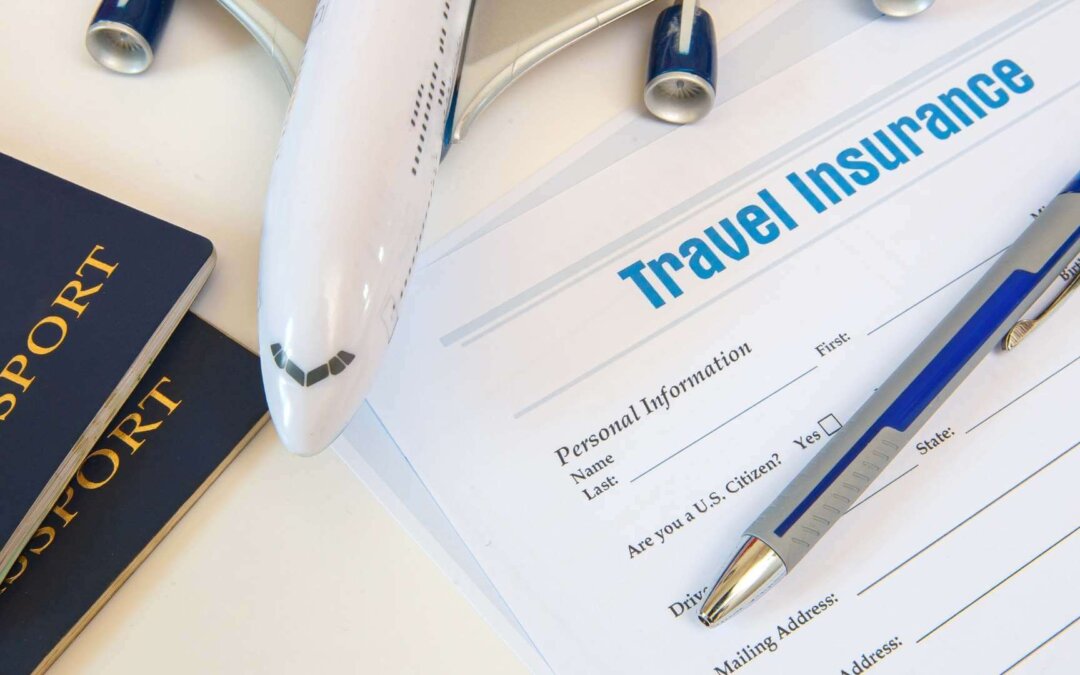Traveling is an exciting adventure, but getting sick while away from home can turn a dream vacation into a stressful experience. In this article I’ll take you through my top tips to ensure you are adequately prepared for any health issue that may arise during your trip.
Choosing the Right Travel Insurance
For those traveling internationally, it’s smart to check if your health insurance covers abroad expenses or if you need to purchase travel insurance. Otherwise, in the event of a medical emergency, you may be forced to pay out-of-pocket
One of my roles as a personal travel advisor is helping my clients find a travel insurance policy that covers medical care abroad. That’s because most standard insurance plans, including Medicare, don’t cover international medical expenses, so it’s crucial to get a policy specifically for travel.
Look for policies covering emergency evacuation, as this can be very expensive. Evaluate short-term health insurance options designed for travelers to ensure you are covered for medical emergencies during your trip. Compare different plans and choose one that meets your needs and destination requirements.
Consulting With Healthcare Professionals
Schedule a visit with your primary care doctor or a travel health specialist at least a month before your trip. Discuss your destination, planned activities, and any health concerns you may have.
This will help you understand any potential health risks and provide necessary information on how to mitigate them.
Vaccinations and Medications
Check your destination’s vaccine requirements and recommended medications. Many countries require proof of specific vaccinations, such as yellow fever.
Update your routine vaccinations and consider additional ones based on your destination. Besides vaccines, you might need medications like antimalarials or anti-diarrheal medicines. Carry a supply of your prescription medications and keep them in your carry-on bag in case of delays or lost luggage.
Identifying and Managing Common Travel Illnesses
When you’re traveling, it’s important to stay aware of potential health issues.
Dealing With Motion Sickness

Motion sickness can turn a pleasant trip into a miserable one. Symptoms include nausea, dizziness, and a general feeling of discomfort. Take action by sitting in a stable part of the vehicle, such as the front seat of a car or the middle of a boat.
Use over-the-counter medications like dimenhydrinate or meclizine. Ginger supplements or candies may also help. Keeping your eyes on the horizon and taking deep breaths can be useful. If you’re on a plane, try to choose a seat over the wings where there is less motion.
Recognizing Fever and Infectious Diseases
Fever can be a sign of several infectious diseases such as malaria or dengue fever, both of which are spread by mosquitoes. Pay attention to symptoms like headache, muscle pain, and rashes. If you develop a high fever, seek medical attention immediately.
Preventive measures include using insect repellents, sleeping under mosquito nets, and wearing long sleeves and pants. In some regions, taking antimalarial medications before and during your trip may be advised. Keep an eye on travel advisories for the latest health recommendations and outbreaks.
What to Do If You Get Sick While Traveling
Traveling while sick is never ideal, but there’s a lot you can do to manage the situation. Addressing your health promptly and using available resources can make a big difference.
Seeking Medical Attention

If you feel ill, seek medical care immediately. For urgent medical help, go to the nearest medical facility. In extreme cases, emergency evacuation services can transport you to a hospital in another country. The Centers for Disease Control and Prevention (CDC) recommends knowing your options for medical evacuation insurance before you travel.
Finding a Hospital or Clinic Abroad
Finding a reliable hospital or clinic in a foreign country can be challenging. Contact the U.S. Embassy or Consulate for a list of local medical facilities. The International Association for Medical Assistance to Travelers (IAMAT) is another useful resource. They provide a network of English-speaking doctors worldwide.
Ask locals or your hotel for recommendations. Many countries have travel clinics specifically for international visitors. Remember to keep addresses and phone numbers of hospitals handy during your travels.
Using Telemedicine Services
Telemedicine is a great option for non-urgent care. Many health insurance companies offer telemedicine services, allowing you to consult with a doctor online. They can provide advice, treatment, and prescriptions if needed.
Keep apps or websites for telemedicine services bookmarked on your smartphone. This way, if you need medical advice but can’t reach a hospital, you have another resource to rely on. Telemedicine can be especially useful if you are in a remote area without nearby medical facilities.
Travel Logistics When Dealing With Illness
Managing travel logistics when sick means making informed decisions to ease discomfort and ensure well-being. This includes adjusting travel plans, contacting airlines and hotels, and reaching out to local U.S. embassies.

Adjusting Your Travel Plans
When you fall ill on a trip, reassessing your itinerary is crucial. First, pause your activities. Plans like tours and excursions can usually be either rescheduled or canceled.
Check your travel insurance policy to see if it covers cancellations due to health issues. Many policies do, allowing you to reclaim non-refundable costs. Contact your travel provider to understand what documents you need, such as a doctor’s note.
Making these adjustments promptly can help you avoid extra stress and ensure you have the proper arrangements for recovery.
Contacting Your Airline and Hotel
If you need to delay or alter your flights, contact the airline as soon as possible. Explain your situation clearly. Many airlines will accommodate changes due to illness, potentially waiving fees or providing travel credits.
For your accommodations, reach out to the hotel to modify your booking. Hotels may offer extensions or allow you to check out later without extra charges. Share your health situation honestly to receive the best possible support.
Keeping open communication with both your airline and hotel is key to handling changes smoothly.
Reaching Out to the Local U.S. Embassy
In serious cases where medical attention is required, contacting the local U.S. embassy can be invaluable. The embassy can help you find reliable healthcare services.
They may also assist in contacting family members, updating them on your situation, and help with travel documentation if necessary. Embassy personnel can provide important information about local medical facilities and suggest steps to ensure your safety and comfort during your recovery.
Knowing that the embassy is there to support you can provide peace of mind in difficult times.
Protecting Your Health Throughout Your Journey
Taking care of your health while traveling is crucial.

Practicing Good Hygiene
Wash your hands regularly with soap and water to kill germs. If you can’t find soap, use a hand sanitizer with at least 60% alcohol.
Avoid touching your face with unwashed hands to stop germs from getting into your body.
Cover your mouth and nose with a tissue or your elbow if you cough or sneeze. This helps prevent the spread of germs to others.
Understanding Health Risks When Flying
Flying exposes you to dry cabin air, which can cause dehydration. Drink plenty of water before and during the flight to stay hydrated.
Use a disinfectant wipe to clean the seat belt, tray table, and armrests to prevent skin rashes or infections from germs.
Stretch and move around during long flights to improve blood circulation and prevent cramps.
Food and Water Safety
Unsafe food and water are common causes of travel-related illnesses. You should always consume food from safe and reputable sources. Avoid tap water in areas with questionable water quality. Opt for bottled or canned beverages and make sure the seals are intact.
Be cautious with street food and avoid raw or undercooked dishes, particularly seafood. Use bottled water to brush your teeth and avoid ice cubes which might be made from contaminated water. Sanitize your hands frequently, especially before eating.
Taking Precautions Upon Return
Monitor your health for signs of illness like fever, cough, or a cold. If you feel sick, contact a healthcare provider.
Consider getting tested for contagious illnesses, especially if you’ve traveled to high-risk areas.
Stay connected with the Smart Traveler Enrollment Program (STEP) for up-to-date safety information relevant to your travels.
Keep proof of your health status and any required vaccinations handy, as some places may ask for it.
Hire Me as Your Personal Travel Advisor
Imagine you’re on your dream trip and suddenly feel under the weather. Beyond curating wondrous itineraries, I also help my clients ensure they will be able to get quick and reliable health care while traveling.
Travel insurance is key. I can guide you through selecting a policy that covers medical emergencies. This helps you avoid unexpected costs.
You might wonder what to pack for health emergencies. Together we can create a list of essentials like medications, first-aid kits, and important documents.
I can provide up-to-date information on health risks and required vaccinations for your destinations.
Your safety is my priority. Contact me and travel with confidence, knowing help is just a call away.

